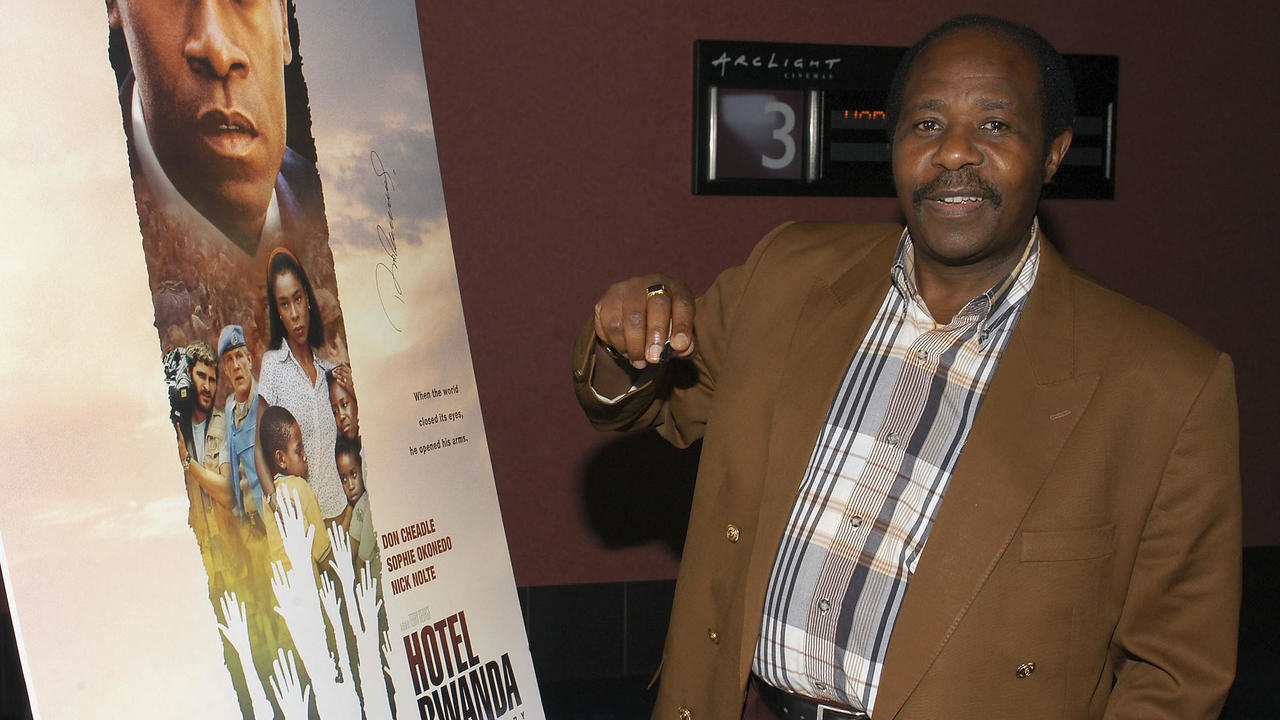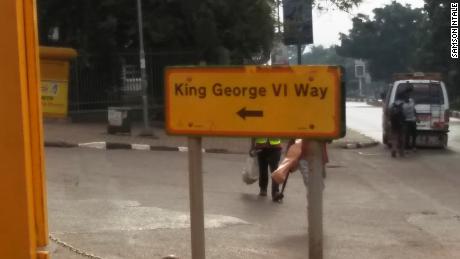Issued on: Modified:
Paul Rusesabagina, who inspired the film Hotel Rwanda by saving more than 1,200 fellow Rwandans during the 1994 genocide, was arrested by Rwandan police on Monday on charges including “terrorism”. Rusesabaginas family accuses Paul Kagames government of wanting to silence a famous critic – but his reputation had already been tarnished.
Advertising Read more
Rusesabagina was arrested on August 31 in the Rwandan capital Kigale, accused of being “the founder, leader, sponsor and member of violent, armed, extremist terror outfits” in the Great Lakes region, the Rwanda Bureau of Investigation (RIB) wrote on Twitter.
The arrest was a bombshell for Rusesabaginas family. This long-standing opponent of President Kagame, now a Belgian citizen and American resident, had been living in exile for more than twenty years. “We are not aware of how he got there [to Rwanda] and how this happened,” his daughter Anaise Kanimba told the BBC. “This is why we believe he was kidnapped because he would never go to Rwanda on his own will.”
Consequently, his family believe that he was kidnapped in Dubai and taken to Rwanda to be arrested there. “We believe he was kidnapped because he would never go to Rwanda on his own will,” Kanimba continued.
The RIB said that Rusesabagina had been arrested thanks to international co-operation, although its deputy spokesman Thierry Murangira refused to clarify the circumstances of the arrest, saying that it could jeopardise the investigation.
Kagames government has mainly criticised Rusesabagina for his role in financing the Democratic Forces for the Liberation of Rwanda, an armed group active in the east of DR Congo formed by Hutus responsible for the 1994 genocide. In 2018, Rwandan authorities filed an arrest warrant against Rusesabagina for funding a guerrilla war, in which the armed group has claimed responsibility for several attacks in Rwanda.
Kanimba, who lives in Washington, argued that the charges against her father are politically motivated. Describing him as a defender of human rights, she said the charges against him are “baseless” and called on the US and Belgium to “help us get him home”.
During his years in exile, Rusesabagina founded the Rwanda Movement for Democratic Change and for years criticised Kagame for silencing opposition. In power since 1994, Kagame has often been accused of authoritarianism, of suppressing all forms of internal dissent and exiling critical voices. Human Rights Watch has accused his government of summary executions, unlawful detentions and torture.
In making the case for the US and Belgian authorities to help her father, Kanimba highlighted his heroic role as a rescuer during the Rwandan genocide. This role saw his life turned into a Hollywood film when Terry George made Hotel Rwanda in 2004 – featuring the “true story” of the manager of the Hotel des Milles Collines in Kigali, who did everything he could to prevent the genocidal regimes forces from entering the hotel.
Rusesabagina took charge of the luxury establishment on April 12, 1994, when ethnic Tutsis were bRead More – Source
Issued on: Modified:
Paul Rusesabagina, who inspired the film Hotel Rwanda by saving more than 1,200 fellow Rwandans during the 1994 genocide, was arrested by Rwandan police on Monday on charges including “terrorism”. Rusesabaginas family accuses Paul Kagames government of wanting to silence a famous critic – but his reputation had already been tarnished.
Advertising Read more
Rusesabagina was arrested on August 31 in the Rwandan capital Kigale, accused of being “the founder, leader, sponsor and member of violent, armed, extremist terror outfits” in the Great Lakes region, the Rwanda Bureau of Investigation (RIB) wrote on Twitter.
The arrest was a bombshell for Rusesabaginas family. This long-standing opponent of President Kagame, now a Belgian citizen and American resident, had been living in exile for more than twenty years. “We are not aware of how he got there [to Rwanda] and how this happened,” his daughter Anaise Kanimba told the BBC. “This is why we believe he was kidnapped because he would never go to Rwanda on his own will.”
Consequently, his family believe that he was kidnapped in Dubai and taken to Rwanda to be arrested there. “We believe he was kidnapped because he would never go to Rwanda on his own will,” Kanimba continued.
The RIB said that Rusesabagina had been arrested thanks to international co-operation, although its deputy spokesman Thierry Murangira refused to clarify the circumstances of the arrest, saying that it could jeopardise the investigation.
Kagames government has mainly criticised Rusesabagina for his role in financing the Democratic Forces for the Liberation of Rwanda, an armed group active in the east of DR Congo formed by Hutus responsible for the 1994 genocide. In 2018, Rwandan authorities filed an arrest warrant against Rusesabagina for funding a guerrilla war, in which the armed group has claimed responsibility for several attacks in Rwanda.
Kanimba, who lives in Washington, argued that the charges against her father are politically motivated. Describing him as a defender of human rights, she said the charges against him are “baseless” and called on the US and Belgium to “help us get him home”.
During his years in exile, Rusesabagina founded the Rwanda Movement for Democratic Change and for years criticised Kagame for silencing opposition. In power since 1994, Kagame has often been accused of authoritarianism, of suppressing all forms of internal dissent and exiling critical voices. Human Rights Watch has accused his government of summary executions, unlawful detentions and torture.
In making the case for the US and Belgian authorities to help her father, Kanimba highlighted his heroic role as a rescuer during the Rwandan genocide. This role saw his life turned into a Hollywood film when Terry George made Hotel Rwanda in 2004 – featuring the “true story” of the manager of the Hotel des Milles Collines in Kigali, who did everything he could to prevent the genocidal regimes forces from entering the hotel.
Rusesabagina took charge of the luxury establishment on April 12, 1994, when ethnic Tutsis were bRead More – Source











